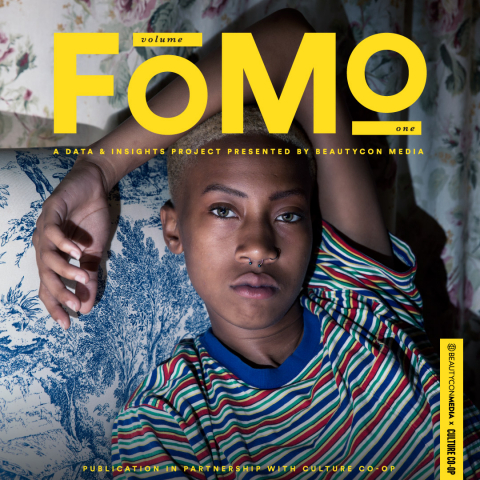LOS ANGELES--(BUSINESS WIRE)--Beautycon Media, a next-generation media company that unites young fans with culturally relevant creators, influencers, as well as beauty and lifestyle brands through international festivals and media platforms, released today the first volume of “FOMO,” its 2017 research study examining the way Generation Z and Millennial consumers use beauty products and social media. The study, entitled FOMO (Fear Of Missing Out), reflects the collective desire of this audience, which it names Pivotals, to be an active, contributing part of societal change. The findings reveal that this important segment of consumers express themselves through what they purchase, as well as through how they use the beauty products and share their every day life experiences.
The FOMO study surveyed 1,000 participants in the 2017 Beautycon Festivals in Los Angeles and New York City, as well as other Beautycon fans identified on social media, and other cultural trendsetters in other cities such as Austin, TX; Portland, OR; Brooklyn, NY; etc. This multi-tiered study used qualitative and quantitative methods, and ultimately revealed that Pivotals use beauty products as a means to challenge outdated norms and standards around beauty, as well as to define their individuality, especially as it relates to race, sexual identity, religion, ability, and politics.
Pivotals fall into the gap between two generations, Generation Z and the Millennials (13-to-34 years old). The study affirmed the cultural power of this group, as it is clear Pivotals are collectively pivoting the beauty industry away from antiquated ideals about attractiveness that drove marketing of the past—and forcing companies to re-think their approaches surrounding beauty, as well as to diversify their product offerings.
“Although we're interfacing with one of the most tech-savvy groups of American consumers in our history, it’s interesting to witness how they are also having a profound human impact on the rest of us,” said Beautycon CEO/Co-founder Moj Mahdara. “Words that once defined cultural outliers or ‘unconventional’ people—for example, mixed race, asexual, or different-abled—the majority of Pivotals we surveyed apply to themselves with great pride. They can also be more than one thing, which in turn impacts what beauty products they buy, how they use it, and how they inform others about what they’ve embraced.”
Today, as the world grapples with extreme perspectives and seismic shifts in values and politics, Pivotals are combining their favorite beauty products and their prowess of digital technology to proactively push past “conventional” or “traditional” definitions of beauty. In the process, they are redefining ideas of race, gender, politics, ability, and even religion. Effectively, they have made the concept of "niche" the new mass.
The FOMO study broke its findings into four trend reports: ‘Microcultural America,’ ‘Wild/Mild,’ ‘Digital Soul Seekers,’ and ‘Z-Boys' to dive deeper into the hearts and minds of Pivotals. The results were testimonial to a new reality, expressed in several thought-provoking statistics:
- 79% of Pivotals agreed with the statement, "The way I present myself is fundamental to who I am."
- 81% expressed that beauty was not just about products but also about cultural expression.
- Rather than find cultural touchstones in celebrities as past generations did, 73% were more likely to turn to people more like them: the influencers on social media.
- 82% agreed that their physical and digital identities were one and the same.
What the researchers also revealed was that the beauty industry in the past decade has shifted from a category of consumer products to a full-blown cultural movement. Beauty more than ever is part of popular culture and represents the pulse of America more than people realize.
“The FOMO report not only underscores the seismic shift in the way beauty products are perceived,” Mahdara continued. “Rather than blending in, Pivotals want to use beauty products as a way of breaking out of conformity and achieving meaningful connection with others. Social media beauty influencers has blossomed from a small group of young people putting how-to videos and images on social media platforms such as YouTube, Instagram, and Snapchat, into a full-on community, some would even say, a movement, which embraces diversity and timely cultural issues.”
To download a sample of the FOMO report click here: https://fomo.beautycon.com/

